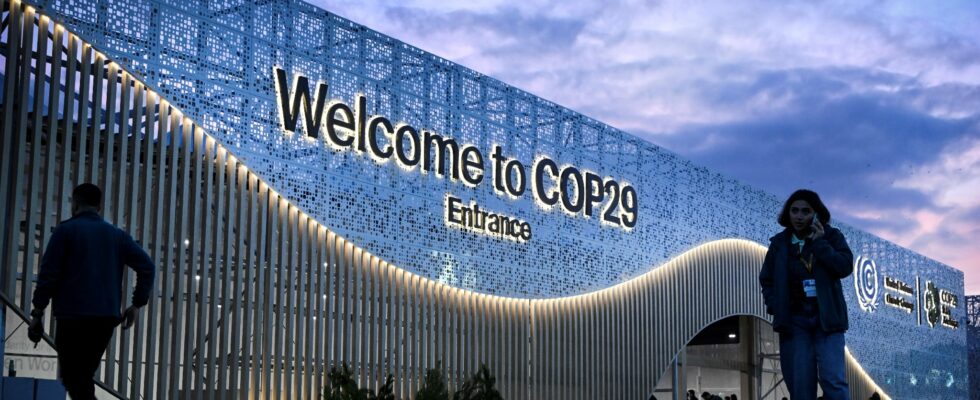The success of COP29 in Baku remains “uncertain”, judged on Saturday November 23 the European Commissioner responsible for climate negotiations, Wopke Hoekstra. “We are doing everything we can to build bridges on all the axes and make all of this a success. But are we going to succeed? It’s uncertain,” he told journalists faced with a COP whose conclusion has not come.
While the COP is already extending later than its planned end, the more than tedious negotiations are slow to reach a compromise this Saturday: the Azerbaijani presidency was initially due to publish around 2 p.m. on site (11 a.m. in France) its final proposal, before submitting it for approval by the nearly 200 countries gathered here around 6 p.m. (3 p.m. in France), twenty-four hours after the theoretical end of the conference.
The EU is pushing for 300 billion in funding per year
The disagreement concerns the amount of financial support given by developed countries to developing countries to deal with climate change. This Saturday morning, the European Union, the world’s leading climate donor, finally announced its support for increasing the financial commitment of developed countries to poorer countries to 300 billion per year by 2035, according to AFP . This offer revises that of the day before to 250 billion per year, which had been rejected by the countries of the South and deemed “unacceptable” by the African countries in view of the disasters they are suffering and their enormous investment needs in low-cost energy. carbon.
But this new proposal falls short of the demands of developing countries, which estimate their needs at between 500 and 1,300 billion dollars annually. The Europeans also condition this figure on other progress in the final compromise, such as an annual review of efforts to reduce greenhouse gases, opposing countries like Saudi Arabia. “There was an extraordinary effort by the Saudis so that we obtained nothing,” choked up a European negotiator this morning.
“No deal is better than a bad deal”
Whatever happens between now and tonight, many countries seem resigned to leaving the UN climate conference in Baku unhappy. For Alden Meyer, an expert who participated in almost all the COPs interviewed by AFP, “developing countries will not be happy with the new figure, whether it is 300 or 350”. “No agreement is better than a bad agreement,” confirmed the head of the African group’s negotiators, the Kenyan Ali Mohamed. He demands more funding, “otherwise it will lead to the failure of the COP.”
The question will then be: will they accept what they consider to be a bad agreement, or will they block any final text? At the COP, any decision must be taken by consensus of the 198 members. For a compromise to be reached, it would be necessary to increase to 390 billion by 2035, reacted economists commissioned by the UN, Amar Bhattacharya, Vera Songwe and Nicholas Stern. A figure also taken up Friday evening by Brazil and its Minister of the Environment, Marina Silva.
